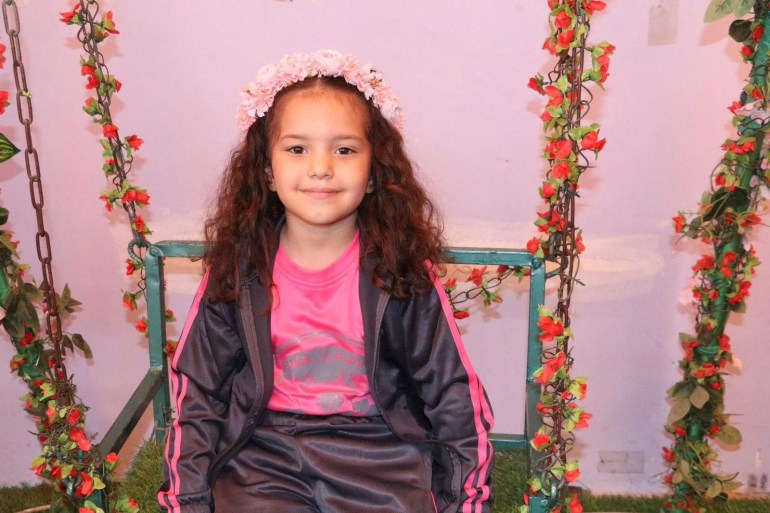On February 7, 10-year-old Saddam Rajab died in a hospital in the occupied West Bank after being shot by an Israeli soldier days earlier. Saddam was standing in the street in front of his home when Israeli soldiers invaded his village near Tulkarem and started firing.
CCTV footage shows the moment he was shot. He fell to the ground, clutching his abdomen and curling up into a foetal position. The first hospital he was rushed to was unable to treat him and so he had to be transferred to another in Nablus. On the way, the ambulance was held up for hours at a checkpoint where an Israeli soldier taunted Saddam’s father, saying: “I am the one who shot your son. God willing, he will die.”
Saddam is one of 13 Palestinian children that the Israeli army has killed in the occupied West Bank since the start of the year. The death toll of children murdered by Israeli soldiers and settlers in the occupied West Bank has shockingly exceeded 220 since January 2023.
Saddam’s story – like the stories of other Palestinian child victims – never made international headlines. There was no reaction from the international community to his murder. That is because Palestinian children experience relentless dehumanisation.
This is apparent even in the few stories that get in the media spotlight, like the case of six-year-old Hind Rajab, who was killed by the Israeli army in Gaza on January 29, 2024, almost exactly a year before Saddam was shot. Along with her aunt, uncle and cousins, Hind was attempting to evacuate from Gaza City in a car when they were surrounded by Israeli forces, who fired on them.
While her relatives were killed, Hind survived the initial bout of fire and managed to get in touch with the Palestine Red Crescent Society (PRCS). The released recording of her phone calls to the PRCS asking for help as Israeli tanks closed in on her shocked the world.
The ambulance that was sent to rescue her never came back, and Hind’s calls to the PRCS ceased. Nearly two weeks later, the bodies of Hind, her relatives and the two ambulance workers, Yusuf Zeino and Ahmed al-Madhoun, were found. Subsequent investigations showed that the Israeli army fired on the ambulance and the car in which Hind was stuck, despite being given their coordinates.
While the story of Hind’s brutal death made international headlines – a rare case among the more than 17,000 children killed in Gaza – there were still attempts to dehumanise her and deny her the status of a child victim. For example, when reporting on the Columbia University student encampment that named a building after her, CNN explained “Hind’s Hall” was a reference to a “woman” who was killed in Gaza.
Another particularly egregious example of denying the child status of a Palestinian child is a January 2024 report by Sky News, in which a broadcaster claimed that: “accidentally, a stray bullet found its way into the van ahead, and that killed a three- or four-year-old young lady”. This “young lady” was a Palestinian child named Ruqaya Ahmad Odeh Jahalin, who was shot in the back by Israeli soldiers while sitting in a taxi with her family in the West Bank.
These examples illustrate what Palestinian academic Nadera Shalhoub-Kevorkian has called “unchilding”. She coined the term to expose the dehumanisation that accompanies violence against children in a colonial context. In occupied and colonised Palestine, Palestinian children are stripped of their childhood in order to justify the brutality that is inflicted upon them.
For decades, Palestinian children have been portrayed by the Israeli regime and the West either as inferior to other children or not children at all; they have often been equated with adults who have the potential to be “terrorists”. In this way, they are seen as inherently dangerous and denied the status of “child” and the connotation of innocence that is afforded to it.
Unchilding not only covers up the murder and maiming of Palestinian children; it also facilitates their kidnapping, detention and abuse in Israeli jails.
Last year, Ayham al Salaymeh, a 14-year-old Palestinian boy from Silwan, Jerusalem, became the youngest Palestinian to serve a prison sentence in an Israeli prison. Ayham had been arrested two years prior and was accused of throwing stones at illegal Israeli settlers.
He was interrogated and placed under house arrest for two years, before being convicted under new Israeli legislation that permits the imprisonment of Palestinian children for capital offences classed as “terrorism”. Israel is the only country in the world that systematically prosecutes and imprisons children.
The Israeli media routinely brands Palestinian children like Ayham as potential security threats, indoctrinated minors or human shields, in an effort to justify their imprisonment and torture.
As the genocide extends across Palestine, the horrific reality is that more Palestinian children and adults will be killed by the Israeli army while the world watches on. Their killings will not be covered by the Western mainstream media, there will be no segments interviewing their families with collages of pictures from their childhoods, nor will there be statements of condemnation from world leaders. Palestinian children have been effectively stripped of their childhood and with it, their humanity.
The views expressed in this article are the author’s own and do not necessarily reflect Al Jazeera’s editorial stance.
